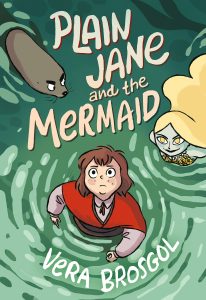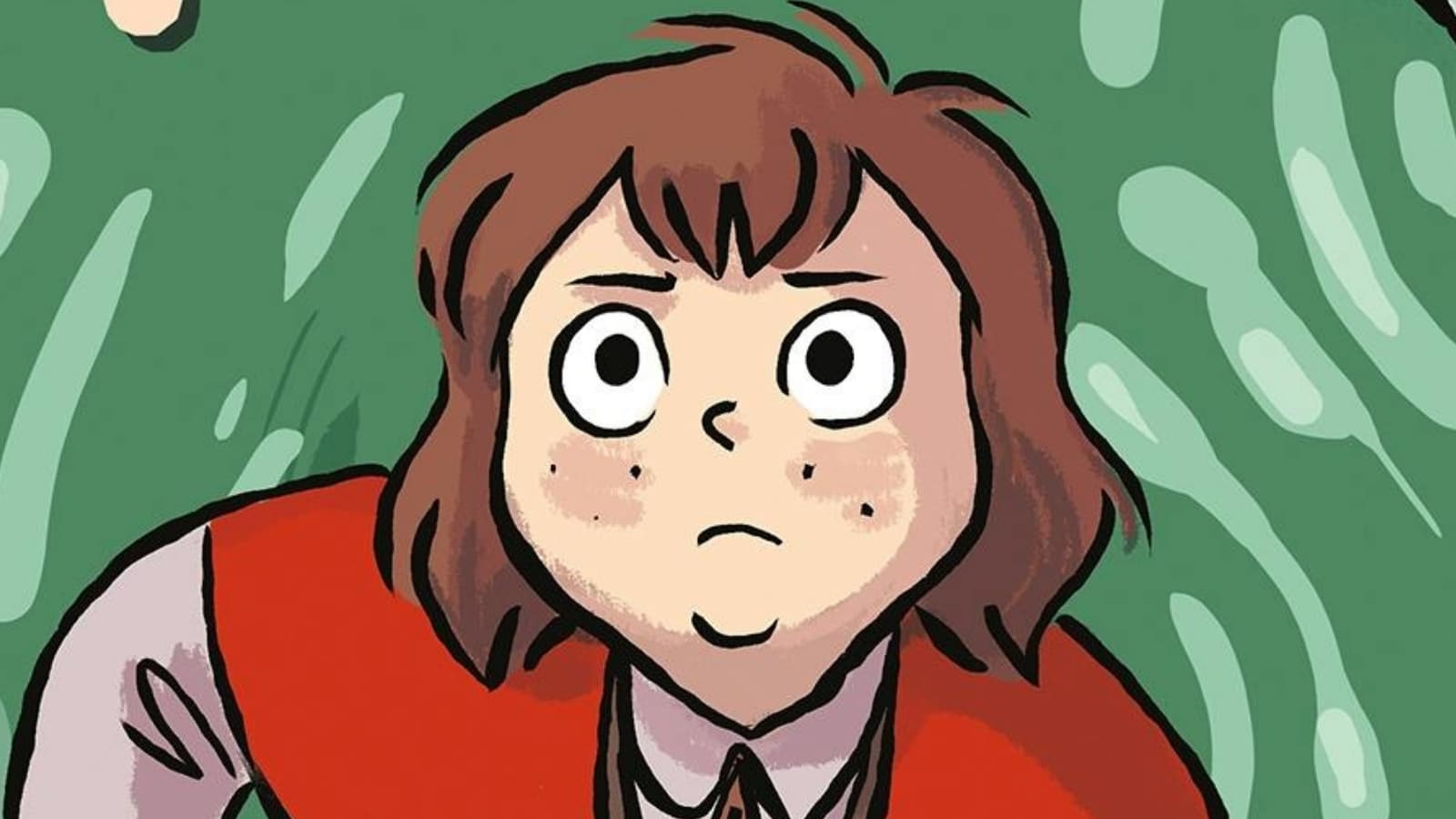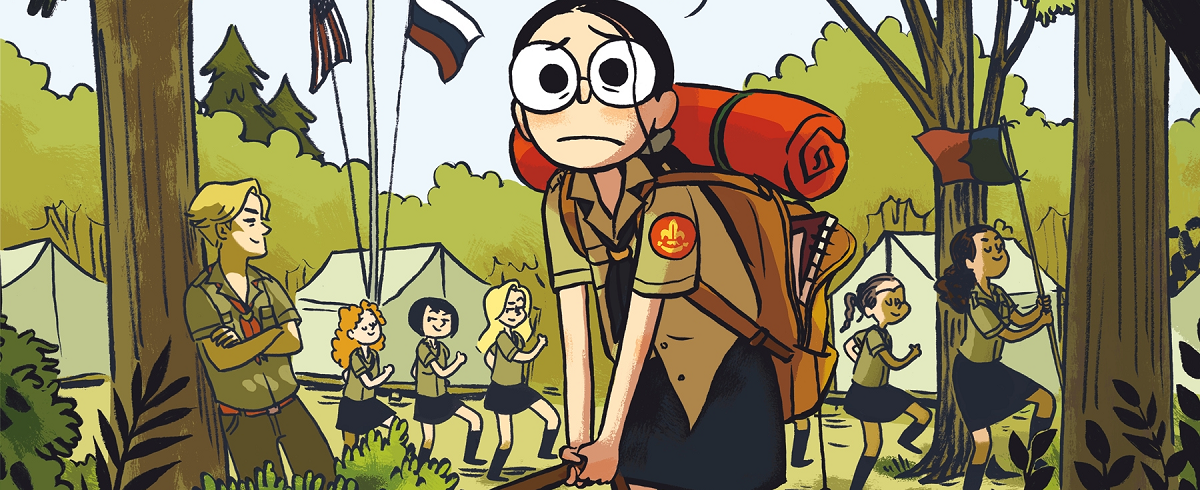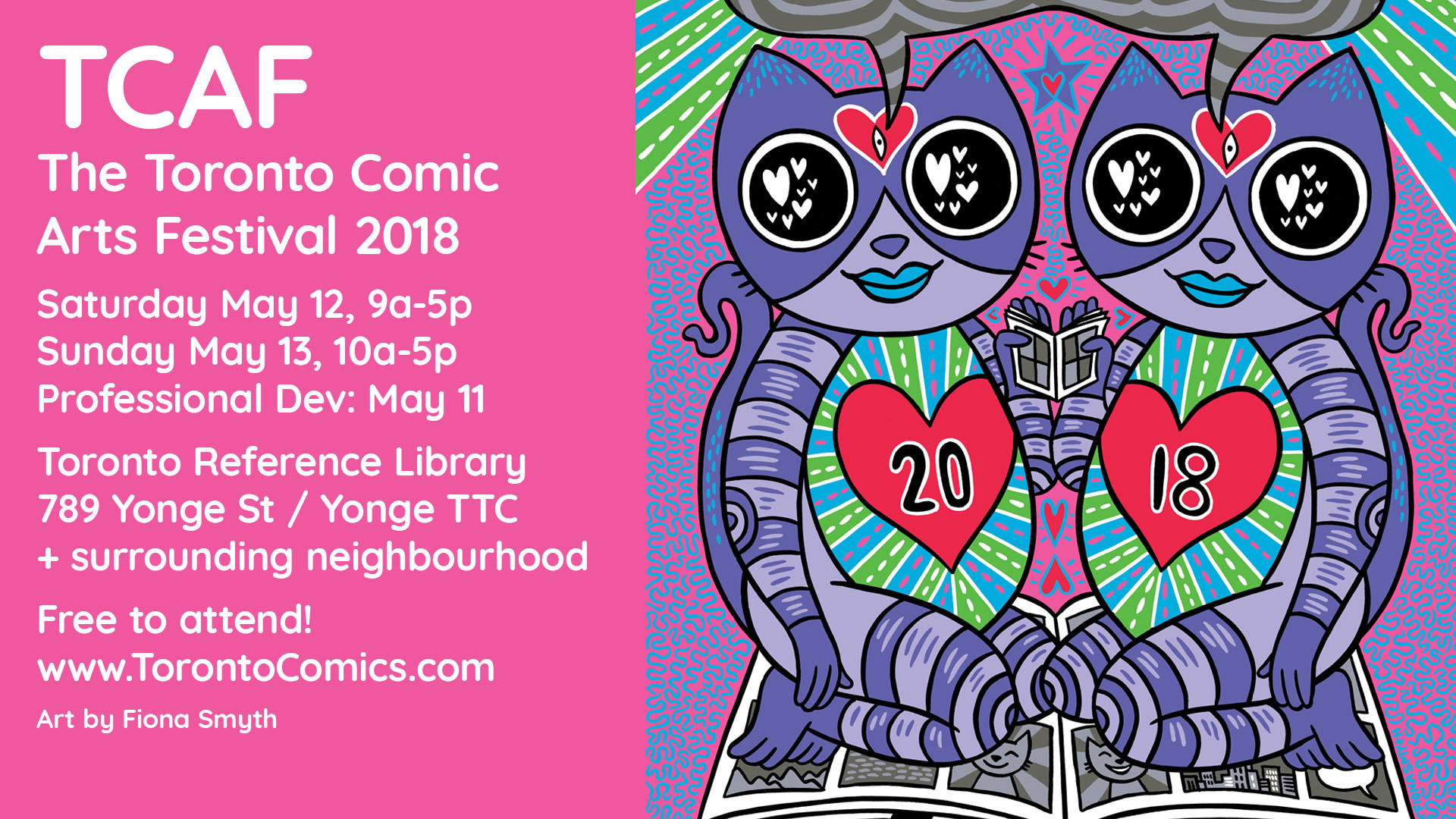
Plain Jane and the Mermaid
Writer/Artist: Vera Brosgol
Publisher: First Second
Publication Date: May 7
Jane Brown is a small fat teenager with a typical, fairytale problem: her parents were killed when a fish cart struck them. Unless she gets married in a week, she’ll lose her home to her awful, estranged cousin. Desperate, she goes to the docks to finally talk to her longtime crush, Peter, a fisherman’s son obsessed with his looks for whom she’s been secretly leaving baked goods for years.
When Jane proposes a new kind of life for Peter, he agrees to marry her—but when she immediately, accidentally insults his abilities, he stomps off and gets kidnapped by a beautiful, voracious siren who drags him back to her undersea home to meet her two sisters. Jane witnesses the kidnapping and learns how to rescue Peter from the town crone, but it won’t be easy. There’s danger lurking everywhere for both of them and unless Jane can find and rescue Peter and convince him to return home with her in three days or less, they’ll both be dead.
Cartoonist Vera Brosgol has oft proven that putting modern twists on ancient tropes doesn’t have to diminish the magic of a story, and she does so again in Plain Jane and the Mermaid, her latest graphic novel from First Second. The exposition is fast and to the point, hooking readers and reeling them in at speed, the pages turning so easily yet so satisfyingly that it’s easy to get lost and read this entire story in one sitting.
Through thick linework and rich colors with a focus on character expressions, movement, and space, Brosgol establishes Jane’s world and invites us into its warmth, asking if we want to befriend the young woman whose life has been turned upside-down by the death of parents who were exceedingly cruel about her appearance. The dialogue is quite sharp, but it’s the art that does most of the heavy lifting here. We’re quickly taught to look at what’s under the surface: Jane’s distant affection for Peter, who’s ridiculed daily by his father and the other fishermen for his vanity; the affection of the crone for her husband, who relies on her entirely; the apparent trap of the undersea house Jane finds in her rescue mission; the siren Loreley’s true intentions and her sisters’ reluctance to support her.
As Brosgol tracks Jane’s quest along the seafloor and Peter’s time with Loreley and her sisters, Melusine and Cleodora, their ignorance of each other’s true circumstances steadily increases the dramatic tension. One might expect Plain Jane and the Mermaid to be a straightforward love story, but it’s far from it.
Although Jane’s initial motivation in proposing to Peter is to stay in her family home, she quickly discovers how much life there is beyond its walls and how freely she can experience it if she fully embraces who she is and what she’s capable of. She overcomes her insecurities, certainly, but more than that, she embraces difference, adapting on the fly each time her world is rocked and proving she has a survivor’s instinct. Jane gets the hero edit, which is complicated.
Brosgol’s characters come from different backgrounds, classes, and even species in Plain Jane, and there are brief moments where she examines intersectional oppression in this world. Jane is initially positioned as the one who has the most to lose, which she soon realizes isn’t the truth—and rather than walk through the door to her desires and close it behind her, she helps the people around her get to where they’re going as well, with resources she can access that they cannot.
Mostly, that’s a good thing, especially since the growth feels organic. However, one component of the ending is so convenient that it’s hard not to feel like Brosgol doesn’t stick the landing. There’s found community here, which is lovely, but there’s also a smattering of white savior complex muddying the waters of the story’s end. Jane sorts out her mess and helps others sort theirs, but she also introduces a new source of significant stress into the lives of her household servants with seemingly little concern about the impact, making for a loaded dismount.
My expectations going into Plain Jane and the Mermaid were very different from my feelings after reading it (which I’ve now done twice). It’s a brilliant fairytale that dismantles several toxic tropes, but leans into others. All told, it’s worth reading, perhaps because of its complexities.
Final verdict: Buy













Vera Brosgol is a must buy for me ever since Anya’s Ghost.
Comments are closed.